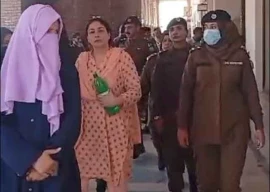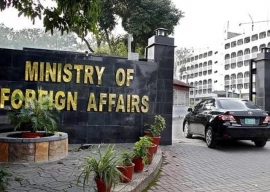
“An unblinkered vision of South Asia would feature a country whose fanatically ideological government in 1998 conducted nuclear tests, threatened its neighbour with all-out war and, four years later, presided over the massacre of 2,000 members of a religious minority. Long embattled against secessionist insurgencies… the ‘flailing’ state… now struggles to contain a militant movement in its heartland. It is also where thousands of women are killed every year for failing to bring sufficient dowry and nearly 200,000 farmers have committed suicide in the past decade.” Mishra added: “This country is not Pakistan; it is India.”
The review noted that India has revamped its image in the West through a most successful rebranding effort and one of “the cleverest PR campaigns”. On the other hand, Pakistan seems to have “lost the narrative”, argued Akram. He suggests that Pakistanis in general and officials in particular are often defensive and non-assertive even when they are on the right side of the argument. Pakistan, indeed, suffers from poor branding and its own people have failed in carving a narrative built on the positives. Ironically, this article reminded me of a few conversations with foreigners who have been to both India and Pakistan. At the cost of being taken on by nationalist Indians, I am reproducing some of the comments here which were made in the context of the brinkmanship and arrogance that has accompanied Narendara Modi’s government.
After taking a study tour to Pakistan, Sri Lanka and India, members of an international officers’ delegation made some poignant observations about their stint in the three countries. Some of these observations may be cursory but still reflect certain realities of some South Asian cities. Arriving in and moving through New Delhi was a shocking experience, recalled a German official. According to him, the life outside the grand airport was in sharp contrast to what he had read about the new, shining India. Unlike the image of a clean and vibrant New Delhi reflecting the oft-trumpeted ‘shining India’, he encountered congested roads, vehicular mayhem, and filth and trash all over.
The delegation visited the Taj Mahal too; the Taj itself is grand but the road up to and from Agra as well as its vicinities often make you nauseous as you see countless people openly squatting along the roads, recalled an official from England. How else would you feel when you came across these images in a country that boasts a nuclear arsenal and is investing billions in nuclear submarines and the latest combat aircraft? Unfathomable that such a country is host to about 400 million people living on less than two dollars a day and a huge number of them don’t have toilets in this day and age.
Big advertising billboards, recalled a British officer, display a yearning for a Western lifestyle, with light-skinned models. Discussions are very much centred on a nationalistic ethos and self-confidence, he said. It is good to be nationalistic and self-confident, but misplaced over-emphasis is not, he remarked. This over-emphasis reflects a disconnect between the marketing gimmickry of the corporate sector and the discourse on ground.
An official from Ukraine was disappointed with his experience in Bangalore and Chennai; these are rightly touted as IT cities, but the life on the roads doesn’t reflect the order and prosperity that comes with the IT-related development. Poverty and disorder is omnipresent, he recalled. Officials from Belgium, France and Spain found Colombo and Islamabad to be much more organised, cleaner and quite orderly. A Japanese delegate complained of “very few women at work” at the Islamabad airport. They also wondered as to who is really running the government. But most officers, who had visited places such as Iraq, Afghanistan and Somalia, did appreciate what they described as the “resilience of Pakistani society”, despite nearly 14 years of unrest.
One of the top executives of a multinational communications company complained bitterly about the unpredictability of doing business in India. At the same time, however, he felt that the Indian market is too big to ignore so his company is still sticking its necks out because of the potential the market offers.
Published in The Express Tribune, August 5th, 2015.
Like Opinion & Editorial on Facebook, follow @ETOpEd on Twitter to receive all updates on all our daily pieces.










































COMMENTS (83)
Comments are moderated and generally will be posted if they are on-topic and not abusive.
For more information, please see our Comments FAQ